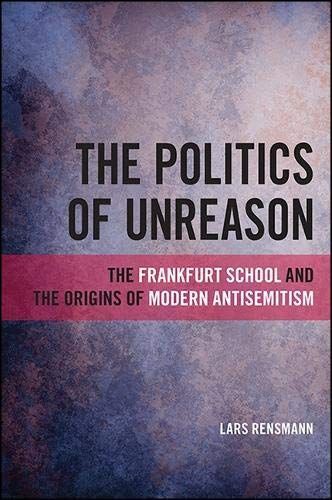
The Politics of Unreason The Frankfurt School and the Origins of Modern Antisemitism
The first systematic analysis of the Frankfurt School’s research and theorizing on modern antisemitism. Although the Frankfurt School represents one of the most influential intellectual traditions of the twentieth century, its multifaceted work on modern antisemitism has so far largely been neglected. The Politics of Unreason fills this gap, providing the first systematic study of the Frankfurt School’s philosophical, psychological, political, and social research and theorizing on the problem of antisemitism. Examining the full range of these critical theorists’ contributions, from major studies and prominent essays to seemingly marginal pieces and aphorisms, Lars Rensmann reconstructs how the Frankfurt School, faced with the catastrophe of the genocide against the European Jews, explains forms and causes of anti-Jewish politics of hate. The book also pays special attention to research on coded and “secondary” antisemitism after the Holocaust, and how resentments are politically mobilized under conditions of democracy. By revisiting and rereading the Frankfurt School’s original work, this book challenges several misperceptions about critical theory’s research, making the case that it provides an important source to better understand the social origins and politics of antisemitism, racism, and hate speech in the modern world. “The Frankfurt School’s analysis of antisemitism, pathbreaking in so many respects, has been a curiously neglected aspect of its legacy. In his lucid and insightful book, Lars Rensmann helps to remedy this gap in critical theory’s reception history. Thereby, he has produced a pioneering study, demonstrating convincingly how the theoretical and methodological framework developed by Adorno, Horkheimer, et al., remains, in many respects, more relevant than ever.” — Richard Wolin, author of The Frankfurt School Revisited: And Other Essays on Politics and Society “The Politics of Unreason is fascinating and richly written. Rensmann digs deeply into critical theory and its arguments. These arguments are spelled out in detail and with precision. He gives real insights into how critical theory approaches the whole issue of hate and unreason, and what critical theory develops as a critique of unreason and its pathological consequences.” — James M. Glass, coeditor of Re-Imagining Public Space: The Frankfurt School in the 21st Century